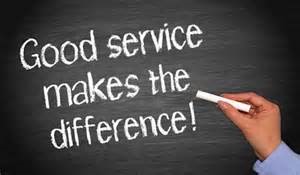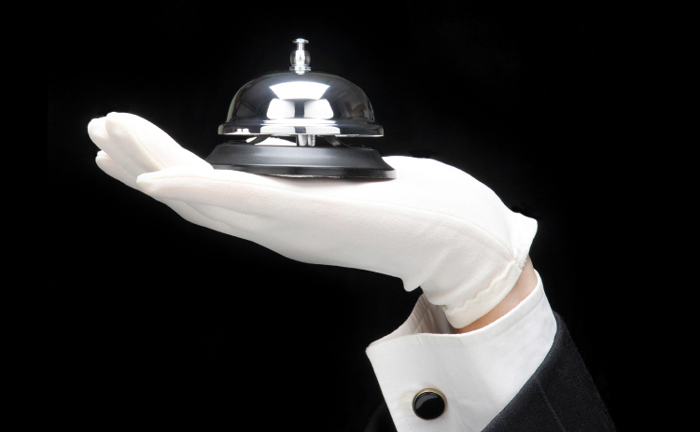
As major gift fundraisers, I think we do a great job of providing opportunities for donors to give, thanking them for gifts, and providing them even more opportunities to give.
What I think we have more work to do on, though, is giving our donors a great experience. Yep, you heard me right. Stand in your donors’ shoes for a moment.
How do you think they feel about your organization? What has been their experience when they give you a gift? Are you the number one choice for their philanthropic impulses? As your donors’ ambassador to your non-profit, how do you think they feel treated by you? Do you think they are absolutely amazed with the experience they have with your organization?
Major donors expect that they will receive information about the organization, that people will be nice to them, that they will be thanked, and that someone will report on how their gifts were used.
Now we all know that many non-profits don’t meet these expectations, and that’s why donors go away.
I’m talking about not only meeting expectations, but also blowing them out of the water – giving your donors an experience they will not forget when they think about your non-profit. Here are some ideas for you to do just that:
- Understand who your donor is. Research, interview them, understand their web of connections… spend the time to know every one of your caseload donors. Richard and I are baffled about why so many MGOs don’t know all the donors on their caseloads. If you know these donors, it paves the way to provide a great experience for them.
- Send handwritten notes. I suggest you send three handwritten notes per year to every donor on your portfolio. That is roughly 450 notes per year. Figure out how many that is per day, and write that many the first thing every morning. These notes are about gratitude. Not only will your day start out great, but your donors will be thrilled to get something in the mail that is hand-addressed and not a bill. The donor will not forget about these notes… trust me.
- Provide introductions to your donors. If you know your donor, you know their interests, their passions and their little quirks. Having this knowledge, make connections that they will appreciate with other donors you know. I’ve heard so many stories from MGOs who have done this, and donors always appreciate it.
- Send information to your donors. You know their hobby? Find something about it and give them that information. You know something about the stock market they would be interested in? Pass it on. Donors will not expect this from you, which is why it will be memorable and they will experience something different from your organization.
- Use Technology. If you have some donors that love technology, use that technology to tell them more about a project your organization is working on. Use it to report back on how their gifts are making a difference in a unique way. Donors will appreciate that you are “speaking their language” (not necessarily your organization’s language) to reach out to them.
- Plan “Break Their Hearts Trips.” Your organization is doing incredible things. Figure out ways to take your donors to the need, show them the tough stuff and allow the donor’s hearts to be broken. Anything can have emotion attached to it if you really know the donor… even if you are putting up a new gym at your university. You just have to be creative. This will blow your donors away.
- Honor them. I’ve heard too many horror stories about how non-profits have treated their major donors. Respect, trust, openness and authenticity is key in any relationship. Show your donors these traits, and you will win their hearts. How can you show your donors authenticity today?
Today, think about how your major donors experience your organization. Then use some of these tips to deepen your relationship with them, and have them be amazed at all you do. The payoff will be huge. You will always be at the top of their minds and hearts.
Jeff






I loved this information, however I cannot afford to be a “major donor,” One year I gave $50.00 from every paycheck to a particular organization through my company’s campaign. Although it was not quite a tithe, it was a sacrifice that I felt good doing. When the year ended I did not renew the donation for another year and felt sorry but my family needed that money. Nobody from that organization bothered to know me or write me or show any interest in me, but I felt good anyway. I guess my point is that major donors are courted for giving much less than one percent of their earnings. Courted. It’s a business. It’s a deduction. It’s a political growth strategy. And people are paid to court them. Paid with the Donations of ten donors like me who sacrifice to give. Why do I feel pretty foolish for giving? Well, that generous donation from your major donor probably got them more money in profit and bonuses than they donated. My donation meant that instead of going out to eat, I could put gas into my ten year old vehicle or buy school lunch for my children, or pay the heating bill! You courted them. You ignored me.
Linds, I totally understand your feelings here. If the non-profit that you gave your $50 to ignored you, they are not deserving of your future donations. No donor, whether they give $10 or $1,000,000 should be ignored. In fact, it’s the number one reason donors stop giving…no one either properly thanked or told them how their gift made a difference. And, yes, you are in most cases correct that major donors probably give a lower percentage of their gross income than the “regular” donor. But, those major gifts produce a significant portion of a non-profit’s net revenue, which helps them to carry out more of their mission. I am glad that you give. Please don’t stop giving, but give to organizations that welcome your gift and tell you what they did with it.
Jeff